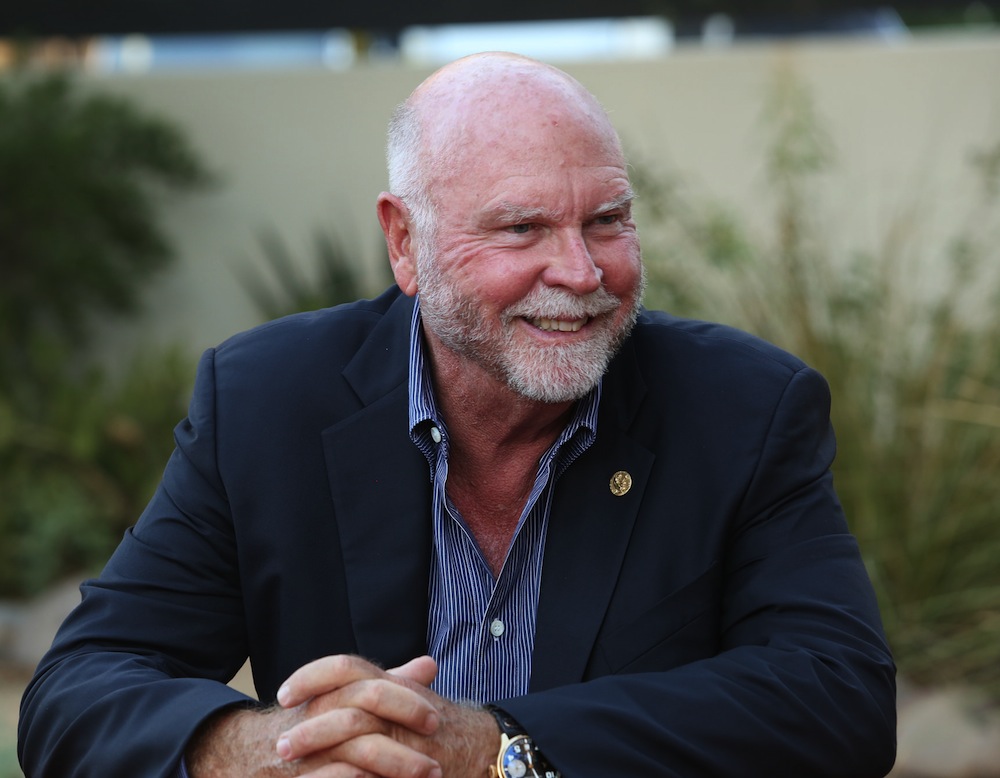
In 2001, J. Craig Venter became the first scientist to sequence the human genome; most recently, he and his research team created the first self-replicating bacterial cell constructed entirely with synthetic DNA. Before participating in a discussion of how synthetic biology will change our lives, he talked in the Zócalo green room about his poodle Darwin, why he likes driving fast, and the strangest thing he’s been asked to synthesize (which was pretty darn strange).
How would you describe yourself in five words or less?
Driven, creative, compassionate, energetic, and impatient.
Who or what would your mascot be?
That’s easy: my poodle named Darwin.
What’s your favorite condiment?
Ketchup.
What’s the strangest thing anyone’s ever asked you about synthesizing?
I was asked by a prisoner in the federal penitentiary to design him a woman who would live with him in his cell and have sex with him.
How do you decompress?
By doing things totally independent of my day job. I like driving fast, I like sailing, I like swimming. Things that require total attention so you can’t ponder other things. If your mind’s wandering while you’re driving around a racetrack you can get in trouble very quickly.
What are you reading right now?
The Psychopath Inside. The author’s name is James Fallon. He’s a medical professor who found out that he had the same brain pattern with PET scanning as serial killers, then found out he had serial killers in his family history, and is trying to work out why he’s not a serial killer.
What was the first album you bought?
It’s hard to remember. It was probably Peter, Paul and Mary—one of theirs.
What would you eat for your last meal?
Cyanide.
Were you a bully or bullied as a kid?
I had a pretty tough crowd I hung out with, and I was probably more bullied. I don’t think I ever did much bullying.
What frustrates you?
Probably how slow it is to change the scientific community, the medical community, the political community—resistance to new ideas, resistance to evidence-based decisions.



